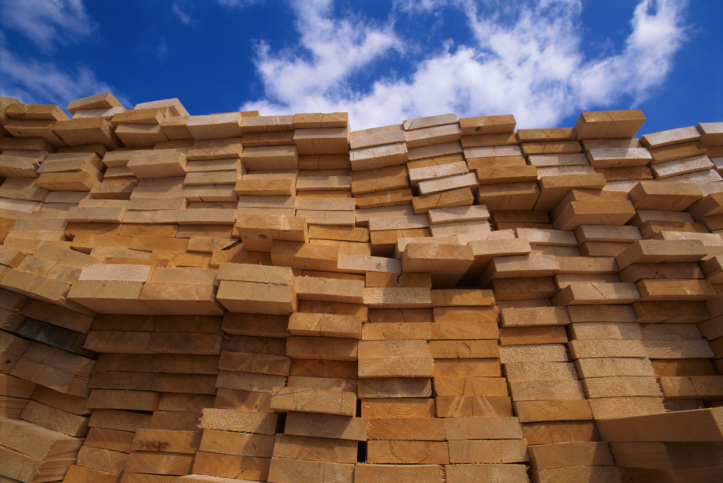Wood is a naturally renewable resource. It’s useful on its own, but when it undergoes the process to become an engineered wood product, or EWP, the usefulness only increases. EWPs have been around for decades; you’re probably familiar with types of engineered wood like plywood and glulaminated timber. An EWP is made from solid wood, veneers, chips, or individual fibers. The wood is mixed with different resins and manufacturing processes and reconstituted as a stronger and less costly wood product. There are several benefits to engineering wood that the homeowner can take advantage of.
Engineered Wood is Stronger than Natural Wood
Because of the addition of resins and other elements, engineered wood has more load-bearing capacity than natural wood. The structural properties of EWPs are more predictable and uniform. Natural wood has elements like knots and cracks that compromise the structural integrity of the wood. Because the wood used to make EWPs is blended with other elements, the finished product is uniformly strong with no weak spots. That means you can rely on an EWP more than natural wood for peace-of-mind.
Engineered Wood is Cost-Effective
EWPs cost less to make, since they use less natural wood product. Because EWPs are less expensive to produce than natural wood, this means that you can buy EWPs at a lower cost. Not only that, but using EWPs in your building can increase the building’s sustainability. Wood has thermal qualities that reduce heat transfer, meaning that less heat from the interior of the building is lost. EWPs also sequester carbon, which enhances the energy performance of the building.
Protect New Buildings from Fire Hazards
Natural wood products are highly flammable. EWPs are less so, due to the manufactured elements. Buildings are most at risk of a fire during construction when fire suppression systems have not yet been put in place. In the case that a building’s frame catches fire, the mass of EWPs makes the fire slower and more predictable. As the wood combusts during a fire, a char layer forms over the surface of the EWP. This makes it more difficult for the fire to burn through the wood, slowing the fire and increasing the chances that the building can be saved.
Help the Environment!
EWPs are made primarily out of wood, which is a renewable resource! Trees are essential to the health of our planet; they absorb carbon dioxide and produce clean oxygen. EWPs use this renewable resource at a slower rate than natural wood, since they dilute the natural wood with other elements to make it stronger and safer. Plus, the entire process of creating EWPs results in a negative carbon footprint.
Fisher Lumber and Hardware
Since 1894, Fisher Lumber and Hardware has been serving homeowners and professional contractors in the Maryland, Washington D.C., and Northern Virginia areas with top quality lumber, building materials, tools, and accessories. Operating under the same ownership since 1947, our business has been built on our reputation with our customers. Get in touch with us today by calling 301-424-6500 or by visiting our website. Stay in touch via Facebook, Pinterest, Twitter, and Google+ too!

